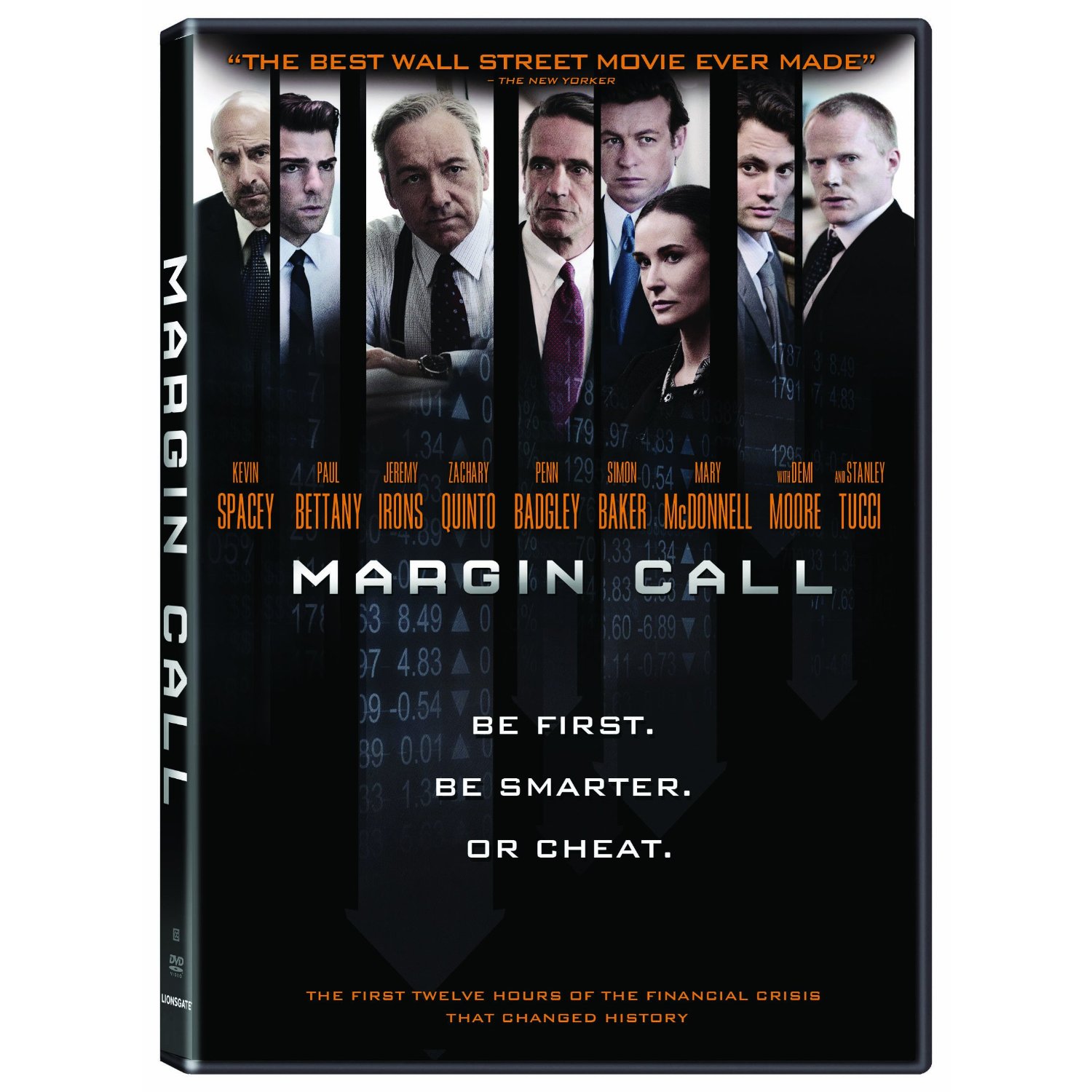This post originally appeared at the Amazon Money & Markets blog. Last month’s post looked at what books finance authors thought were noteworthy in 2012. Enjoy.

——-
It’s awards season in Hollywood. The Golden Globe awards were just handed out and the Academy Awards nominees are in full campaign mode. For those with an interest in finance and investing there is little to get excited about in this year’s slate of contenders. Then again, there rarely is much to see in the way of finance-focused films, despite a bump up in the past year or so.
This is due in part to the difficulty of portraying finance in an interesting and compelling way. The other reason undoubtedly has to do with money. In short, you don’t exactly see finance-related films at the top of the box office charts. That is why when finance-related films do get made they are worth watching for the themes they raise and the lessons we can learn from them.
![]() Sometimes have a list of actions they should avoid is more useful than a list of positive things they should do. In my book, Abnormal Returns: Winning Strategies from the Frontlines of the Investment Blogosphere I highlight a number of “investment sins.” It just so happens that many of these “sins” line up with themes that emerge from some of the high-profile Hollywood films that venture into the world of finance. (For those of you who have not seen the films should note there are spoilers below.) Some in no particular order here are some finance-related films worth a look and the resulting take away lessons.
Sometimes have a list of actions they should avoid is more useful than a list of positive things they should do. In my book, Abnormal Returns: Winning Strategies from the Frontlines of the Investment Blogosphere I highlight a number of “investment sins.” It just so happens that many of these “sins” line up with themes that emerge from some of the high-profile Hollywood films that venture into the world of finance. (For those of you who have not seen the films should note there are spoilers below.) Some in no particular order here are some finance-related films worth a look and the resulting take away lessons.
Illiquidity
Arbitrage starring Richard Gere as a hedge fund manager intent on selling his firm is more of a thriller than it is a finance film but it does provide a key lesson along the way. Gere’s fund has a big hole in its balance sheet due to the fact that Gere hedged an illiquid position in a copper mine in Russia with copper futures. When the futures headed south and Gere could not extract value from the sure thing that was the Russian copper he was in a pickle. This problem is but one of the problems Gere faces throughout the film.
Lesson learned: The problem with illiquid assets doesn’t show up at purchase. Rather it shows up over time when cash is needed and/or there are other more attractive investments.
Complexity
 Margin Call by writer/director J. C. Chandor highlights a day in the life of a Lehman Brothers-like investment bank on the verge of collapse. Why is it on the verge of collapse? In large part because it doesn’t know the danger that its own mortgage-backed derivative filled assets will have on its balance sheet if and when the market turns. Margin Call was nominated for an Oscar for best original screenplay last year and is definitely worth a viewing.
Margin Call by writer/director J. C. Chandor highlights a day in the life of a Lehman Brothers-like investment bank on the verge of collapse. Why is it on the verge of collapse? In large part because it doesn’t know the danger that its own mortgage-backed derivative filled assets will have on its balance sheet if and when the market turns. Margin Call was nominated for an Oscar for best original screenplay last year and is definitely worth a viewing.
Lesson learned: Complexity is a portfolio killer for institutions and individuals alike. For individuals, complex assets usually come along with high fees (and illiquidity) compounding the risks for investors.
Leverage
While The Queen of Versailles by director Lauren Greenfield is a documentary it feels more like fiction. While the film nominally is about the building of the largest single family home in America, based on the palace at Versailles, its lessons for investors are two-fold. First on the importance of living within your means. Second on the dangers of leverage. If nothing else the housing bubble and subsequent financial crisis should be vivid examples of the dangers of leverage.
Lesson learned: Leverage, in all its forms, increases the risk of distress. The biggest risk most investors need to be aware of is hidden or implicit leverage.
Incentives
 Boiler Room starring Giovanni Ribisi is at its heart a morality/coming of age story. However for investors it should be a cautionary tale. It is commonly said that on Wall Street investments are sold, not bought. In the case of a boiler room the investments being sold are practically worthless and the selling process largely fraudulent.* Investors need to know what they own and a heavy handed selling process should be a tip-off that you are likely getting sold a bill of goods.
Boiler Room starring Giovanni Ribisi is at its heart a morality/coming of age story. However for investors it should be a cautionary tale. It is commonly said that on Wall Street investments are sold, not bought. In the case of a boiler room the investments being sold are practically worthless and the selling process largely fraudulent.* Investors need to know what they own and a heavy handed selling process should be a tip-off that you are likely getting sold a bill of goods.
Lesson learned: Knowing what you own is essential for all investors. If you don’t understand it, don’t buy it. The more complex and sales-driven the process the more likely some one else is getting the better end of that transaction.
Information
Information asymmetry is simply another way of saying some one knows more than you. Two now classic films, Wall Street and Trading Places have as themes the value of information. In both films the information is obtained in less than legal ways. But both films highlight the value of (and lengths to which) investors are willing to go to get market-moving information. This reality is still true today as the SEC continues to crack down on insider trading especially at hedge funds.
Lesson learned: On Wall Street some one almost always knows more than you. Obtaining an edge in the markets is never easy. That is why some take a short cut into illegality.
No one is claiming that you can learn to trade or invest by watching the previously mentioned films. Far from it. However sometimes it takes some distance (and fictionalization) to learn some important lessons. The vast majority of investors can stay safely away from the Wall Street depicted in these films. It is not for nothing that many of the initially idealistic protagonists in these films end up in the end disillusioned. For the vast majority of investors simplicity should trump the desire to “beat the market” and in so doing they can avoid these common investing sins.
*Fans of Boiler Room will likely also be interested in The Wolf of Wall Street by Martin Scorcese and starring Leonardo DiCaprio that is set in this same world and has a (tentative) Q4 2013 release date.








